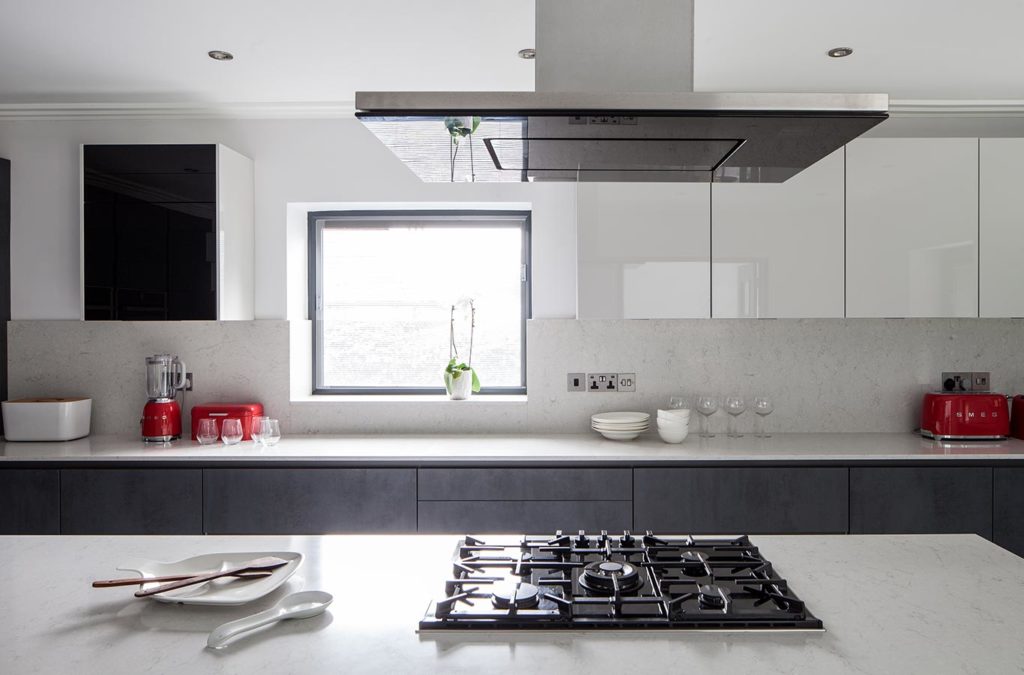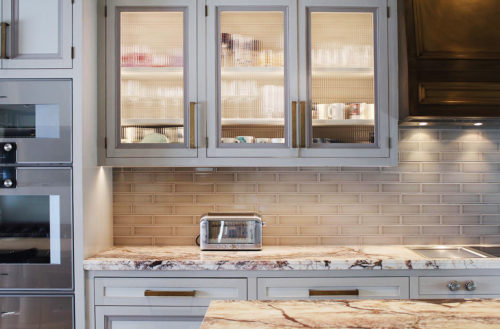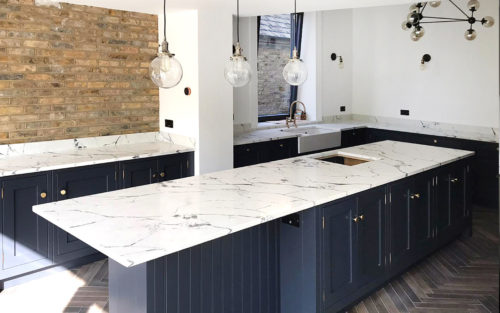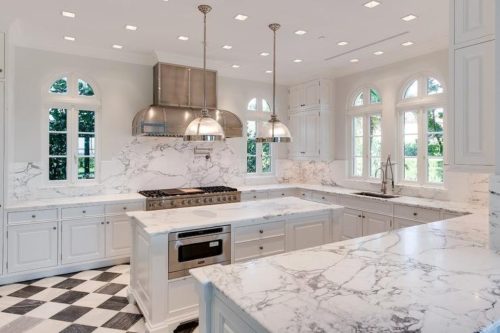If you are going to revamp your kitchen in London, you might consider that the cabinets are the most important thing from the point of view of appearance. Certainly, they are important, but equally, if not more so, are your kitchen worktops. Not only do you want your kitchen worktops to look great, but they have to be able to stand up to the job. That means food spills, water marks, quite possibly heavy cast iron pans which many families use these days, and even the possibility of heat damage.
There are of course, lots of choices of materials for kitchen worktops. There are laminates, natural stone, engineered stone, wood, stainless steel, cement, and more. Stainless steel can, of course, withstand a lot of punishment, and it is the material of choice for many commercial kitchens, but you could hardly describe it as beautiful.
Many People Opt For Natural Stone
Many people today who are having a kitchen makeover are opting for natural stone. This is because no two slabs of natural stone are ever going to be the same. It depends on where the stone was formed millions of years ago and what other minerals have been incorporated within it as it cooled from the molten state into hard rock. So, if you have natural stone worktops, they are going to be unique and nobody else will have an identical look in their kitchen.
Natural stone choices include marble, granite, limestone, quartzite, and more, with granite being an extremely popular stone. It is a tough rock: indeed, somebody said that whoever coined the term “hard as a rock” was probably thinking of granite. It scores a 7 on the Mohs scale of hardness which means that it is very difficult to scratch it. Even so, you should not cut or chop foods directly on a granite worktop. While you will probably damage your knives more than the worktop, you may leave behind a metal residue that can be difficult to remove.
Granite worktops in London are very heat resistant, but even so it is always recommended that you use a trivet on any kitchen worktop to be on the safe side, especially when using pans that emit heat for a long period of time, such as crockpots.
Granite Worktops Need To Be Sealed
Granite is a porous stone, and as such needs to be sealed with a quality sealer. Ideally, this should be done before installing taps, sinks, and so on, so that the whole surface is sealed, including the holes where the taps are to be installed. You can get quality sealers today that will have a life of up to ten years. Even so, it is best to apply another coat of sealer before the old one wears off.
As granite is a natural stone, the colours are limited to what Mother Nature decided to produce. There are not a lot of bright colours or solid patterns, although they can be found. You can find granite in black, grey, blue, green, brown, red, beige, and even white. You can see a range of samples on our page dealing with granite worktops which will give you some idea of the choices available.
Many of the slabs have huge waves and swirls in them, and for this reason you need to view the actual slabs that will be used in making your worktops. In many kitchens you will need at least two slabs of granite, and very often three, so you need to choose how they should fit together from the colour point of view. In general, the darker slabs of granite are very dense, and some may not even require a sealer, but it is always good practice to use one.
The cost of granite worktops can vary considerably. Some quarries are difficult to access and may only be able to be quarried at certain times of the year, so if you are looking for an exotic granite from one of these, they will be at the top end of the price range. However, at the lower end, some granite slabs will cost less than high-end laminates.
As with all natural stone worktops, you should take care not to drop heavy pans and pots on them. Granite is a hard stone, but although unlikely, it is still possible to chip the edges.




